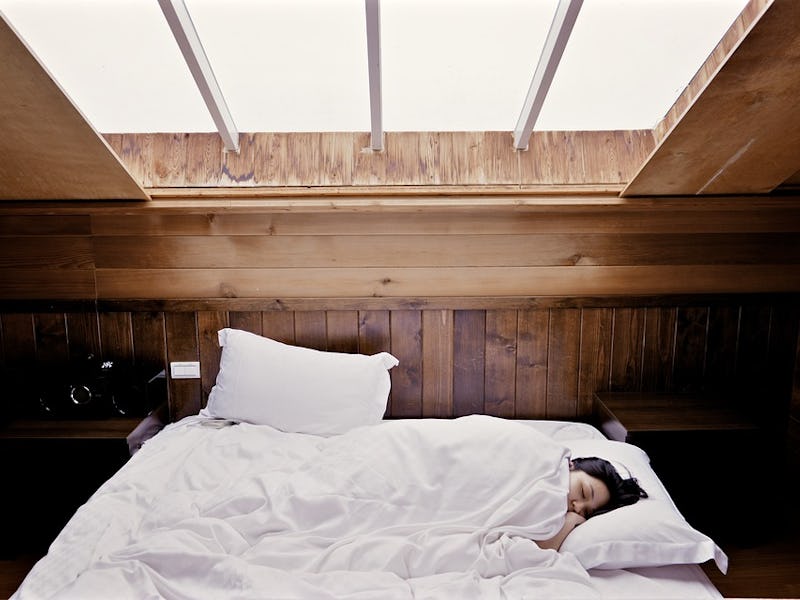Apple Takes Another Step Toward Becoming a Health Giant and a Tech Giant
Could another Apple health-tracker hit shelves soon?

Apple wants to let users track their health with the help of the iPhone in their pockets and the Apple Watch on their wrist. The company cannonballed into the consumer health market with the introduction of the Apple Watch Series 4’s ECG and fall detection features. Now, it’s working on taking this strategy to the next level by developing sensors for mattresses and pillows.
The company acquired a patent application on May 9 that was originally filed to the European Patent Office by San Francisco-based startup Tueo Health early in 2016. The document was unearthed by PatentlyApple over the weekend, and describes how a mattress and pillow sensor can be used to monitor medical conditions, sleep patterns, breathing, heart rate, and overall health in bed.
The sensors could then upload all of that biometric data to the users’ iPhone, Apple Watch, and other electronics devices. This could provide an extremely accurate overview of a person’s heath when they’re active during the day and resting. The system could also be used to track two people in bed or trigger an alert when if it senses a person is suffering from an emergency, like an asthma attack for example.
The diagram blueprints how a mattress and pillow sensor could track breathing, heart rate, and other biometric data and then upload that all to users' computers, phones, and other devices.
Not only could bed sensors add new functionality but it could improve on existing sleep tracking technology. Currently, most sleep apps use actigraphy, which is a movement tracking technology detected using a smartwatch, or a smartphone’s microphone to track breathing, snoring and movement.
Actigraphy is the most accurate but unless a users only uses a smartwatch to go to bed, they’ll likely be forced to charge it overnight, leading to data gaps. Apps like Sleep Cycle that use microphones are accurate but can be thrown off by a second person or any noise in the room. A bed sensors are always connected to power and can pick up on nuances that other methods of sleep tracking cannot. This tech seems to be a natural advancement for Apple, especially after CEO Tim Cook made it clear how he envisions the company taking shape in the next few years.
“If you zoom out into the future, and you look back, and you ask the question: ‘What was Apple’s greatest contribution to mankind?’, it will be about health,” he said during a January interview with CNBC. “We’re democratizing it. We’re taking what has been with the institutions and empowering the individual to manage their health.”
The sensors could be especially useful for people suffering from allergies or respiratory disease. They could track when during their sleep they're more problematic and work with a doctor to alleviate their effects.
The company acquired sleep-tracking company Beddit in 2017 and is currently selling the Beddit 3 Sleep Monitor for $150. Previous patent filings have suggested that the company is working to bring a new version of the sleep tracker to market.
Sunday’s patent acquisition from Tueo is further evidence that Apple hasn’t abandoned its plans to sell a smart bed in the future. Users might one day be able to show their doctors comprehensive health data tracked on the iPhones, Apple Watches, and Apple beds when they go in for a check up.